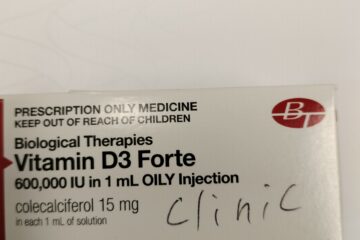Question: Does the Government’s No Fault COVID-19 Indemnity Scheme fully protect me from any claims by the patients?
Answer: In August 2021 Australian Government introduced the No Fault COVID-19 Indemnity Scheme. The Scheme will provide Australians with quick access to compensation for COVID-19 claims related to the administration of a Therapeutic Goods Administration approved COVID-19 vaccine delivered through a Commonwealth Government approved program.(1)
It seems almost too easy. If a patient suffered any side effects he/she needs to apply for compensation via this website. The main points are reproduced below.
The scheme will cover the costs of injuries $5,000 and above due to the administration of a TGA approved COVID-19 vaccine or due to an adverse event that is considered to be caused by a COVID-19 vaccination. The recognised side effects of the COVID-19 vaccines are included in the approved Product Information and include thrombosis with thrombocytopenia syndrome (TTS) associated with the AstraZeneca vaccine and myocarditis and pericarditis associated with the Pfizer vaccine.
For claims between $5,000 and $20,000, claimants need to have been hospitalised for at least one night, will need to nominate they are seeking less than $20,000 and provide applicable evidence of:
- the nature of the injury and medical documentation of its likely relationship to a COVID-19 vaccination
- hospitalisation, due to a vaccine-related injury
- medical costs
- lost wages.
The evidence requirements for claims $20,000 and over, including death, are still being developed and will be advised as part of additional information on the scheme in the future. Claims relating to death will not require evidence of hospitalisation.
Something tells me that the ‘nature of the injury and medical documentation of its likely relationship to a COVID-19 vaccination’ will not be that easy to obtain. I might be wrong though.
Naturally, if compensation is not easily obtained via the scheme, patients who claim to be suffering any side effects of the COVID-19 vaccination will resort to other avenues to get compensated. Surely, there will be plenty of legal services available to assist with that.
The most obvious avenue for such claims is to use one of the ‘Rolls Royce’ medico-legal cases in Australia – Rogers v. Whitaker (spelt as Rogers and Whitaker as it is a civil case)
The High Court of Australia affirmed the Supreme Court of New South Wales’ determination that a doctor has a duty to warn a patient of any material risk involved in a proposed treatment. A risk is considered material if a reasonable person in similar circumstances would attach significance to the risk, or if the doctor is, or should be, cognizant that the particular patient would express concern about the risk.
In other words, the Court found that a doctor must explain the risk of the procedure to the patient in a way that any reasonable person would understand fully the risk of the procedure. Needless to say, a very few GPs and, definitely, no one at the mass COVID-19 vaccination centres provide such explanation if any at all.
So, the medico-legal risk associated with the administration of the COVID-19 vaccine is not about the side effects. The risk is associated with the adequacy of the explanation provided by the doctor about the possible side effects. The Government’s No Fault COVID-19 Indemnity Scheme provides no protection against such claims.
The exhaustive explanation of the side effects may have some undesirable outcomes. The patient may refuse to have a vaccine contrary to the endorsed guidelines. For example, the guidelines provide that if any person had anaphylaxis as a result of the flu vaccine in the past can have the COVID-19 vaccine that has the same ingredient as the flu vaccine. (2) This would be unthinkable if we apply the same scenario to Penicillin. Should GP explain this to the patient, the patient would most certainly refuse the COVID-19 vaccine.
GPs are put in a difficult situation here. From one side, they are exposed to serious legal action by the patient if potential serious side effects are not explained fully. On another side, they are at risk of being deregistered by AHPRA for not administering the vaccine as per guidelines.
Practice points:
- GPs need to assess carefully every patient’s ability to comprehend any information about side effects of the COVID-19 vaccine.
- GPs need to provide an indepth information about the risks associated with the vaccination. The depth of the explanation must be adequate tot the assessment of the ability of the patient to understand the information.
- GPs need to refer to the specialist immunology service to off load the responcibility for any cases that respresent even a slight risk.
References:
- https://www.health.gov.au/ministers/the-hon-greg-hunt-mp/media/no-fault-covid-19-indemnity-scheme Last accessed on 27.09.2021
- https://generalpracticetraining.com.au/wp-content/uploads/2021/09/Clinicians-Referral-Guide-to-VicSIS_ONEpage.pdf Last accessed on 27.09.2021


